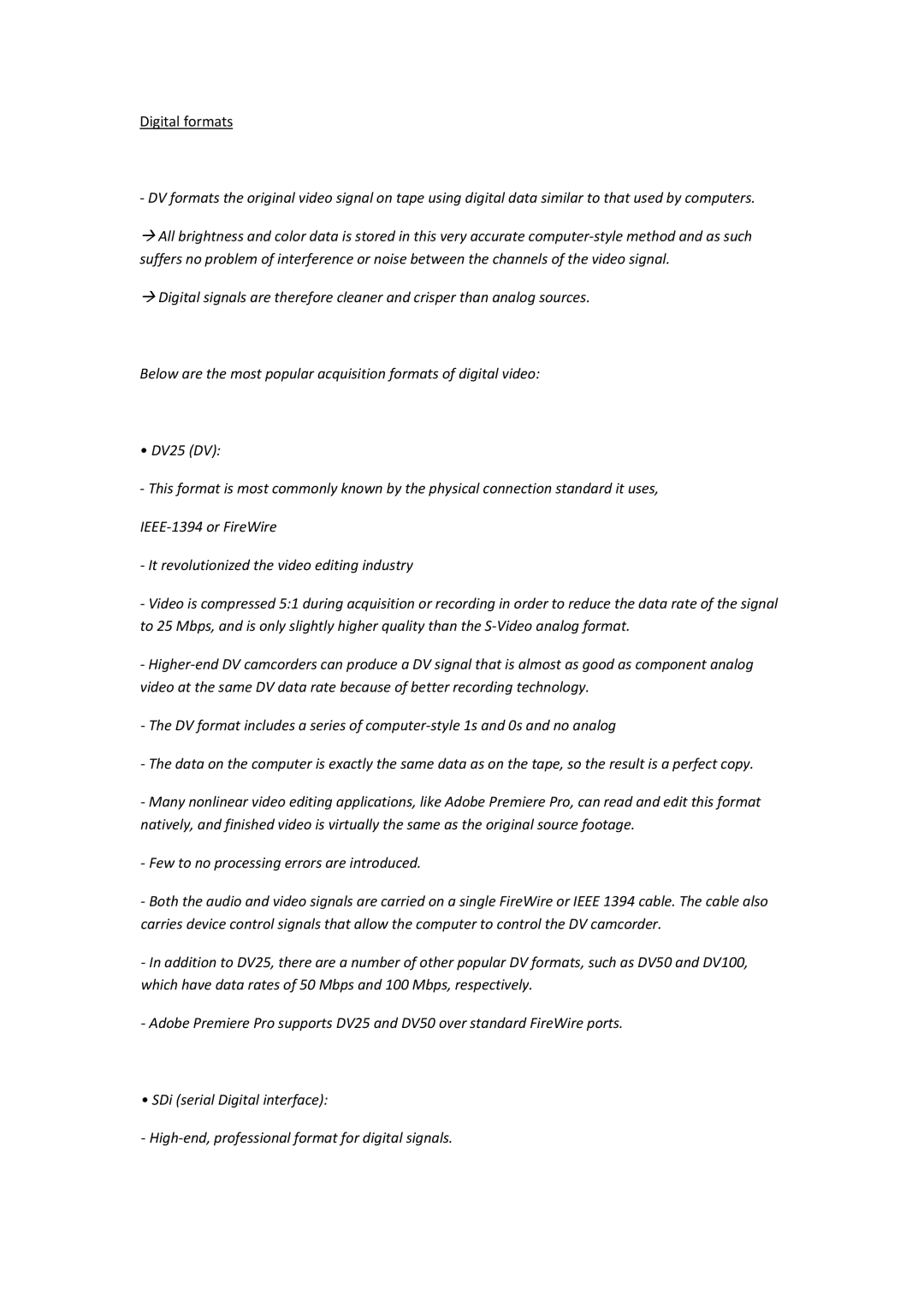Digital formats
‐DV formats the original video signal on tape using digital data similar to that used by computers.
ÆAll brightness and color data is stored in this very accurate computer‐style method and as such suffers no problem of interference or noise between the channels of the video signal.
ÆDigital signals are therefore cleaner and crisper than analog sources.
Below are the most popular acquisition formats of digital video:
• DV25 (DV):
‐This format is most commonly known by the physical connection standard it uses, IEEE‐1394 or FireWire
‐It revolutionized the video editing industry
‐Video is compressed 5:1 during acquisition or recording in order to reduce the data rate of the signal to 25 Mbps, and is only slightly higher quality than the S‐Video analog format.
‐Higher‐end DV camcorders can produce a DV signal that is almost as good as component analog video at the same DV data rate because of better recording technology.
‐The DV format includes a series of computer‐style 1s and 0s and no analog
‐The data on the computer is exactly the same data as on the tape, so the result is a perfect copy.
‐Many nonlinear video editing applications, like Adobe Premiere Pro, can read and edit this format natively, and finished video is virtually the same as the original source footage.
‐Few to no processing errors are introduced.
‐Both the audio and video signals are carried on a single FireWire or IEEE 1394 cable. The cable also carries device control signals that allow the computer to control the DV camcorder.
‐In addition to DV25, there are a number of other popular DV formats, such as DV50 and DV100, which have data rates of 50 Mbps and 100 Mbps, respectively.
‐Adobe Premiere Pro supports DV25 and DV50 over standard FireWire ports.
• SDi (serial Digital interface):
‐High‐end, professional format for digital signals.
